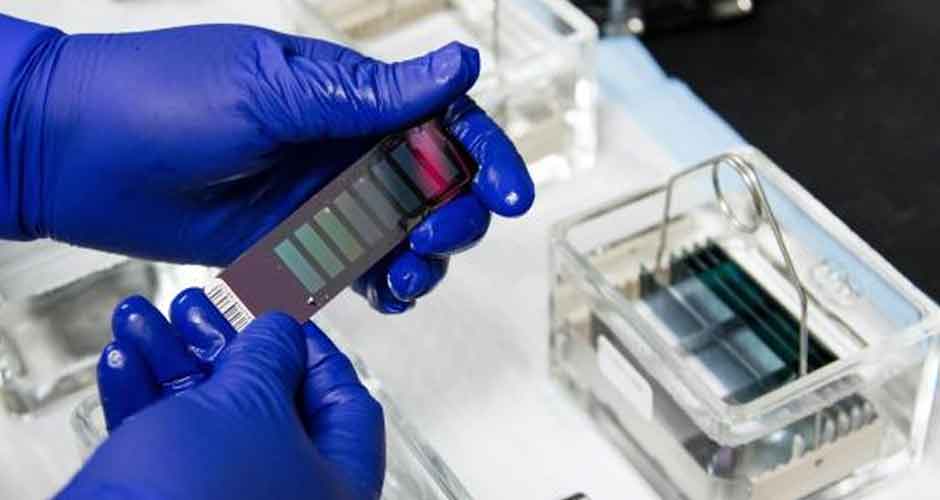ICP-MS, or Inductively Coupled Plasma Mass Spectrometry, is a highly valuable analytical technique in various scientific fields. It enables the detection and precise measurement of trace elements and isotopes with exceptional sensitivity.
This capability has significant implications in environmental analysis, pharmaceutical research, food safety, geology, forensics, archaeology, and nanotechnology. Simultaneously analyzing multiple elements, ICP-MS saves time and resources while advancing our understanding of the environment, ensuring product safety, and driving scientific progress across diverse disciplines.
Environmental Analysis
Applying ICP-MS in environmental analysis is crucial for assessing heavy metal levels in soil and water samples. By precisely quantifying toxic elements, it provides valuable insights into potential risks to ecosystems and human health. Also, ICP-MS aids in monitoring various pollutants, studying their effects on the environment over time, and evaluating the efficiency of environmental policies and regulations.
Pharmaceutical and Biomedical Applications
ICP-MS measures metal concentrations in biological samples like blood, urine, and tissues in biomedical research and clinical settings. It aids in assessing toxicity, monitoring exposure levels, and diagnosing metal-related diseases.
Food and Beverage Industry
ICP-MS, a technique widely used in the food industry, has multiple applications. It helps identify and measure harmful substances like heavy metals and pesticides in food products, ensuring compliance with safety regulations and preventing consumption.
In addition, it assists in monitoring the nutritional content and overall quality of food by analyzing essential and trace elements. Lastly, ICP-MS is crucial in detecting and measuring trace elements in beverages, such as water, juices, wines, and spirits, to evaluate their impact on consumer health and ensure they meet regulatory safety standards.
Geology and Mining
As a useful method in geology and mining to explore minerals, it analyzes rock samples to identify potential mineral deposits based on element concentrations. Additionally, ICP-MS helps assess the environmental impact of mining by monitoring the release of harmful elements and promoting sustainable mining practices.
Forensic Science
ICP-MS is a versatile analytical technique used in forensic investigations. It plays a crucial role in trace element analysis, identifying gunshot residue, and linking paint chips to specific sources. Additionally, it enables the determination of isotopic ratios in samples, helping establish the geographical origin of evidence like drugs or fibers.
In forensic toxicology, ICP-MS analyzes toxic elements in biological samples, investigates suspected poisoning cases by identifying toxins, assessing exposure levels, and providing essential evidence for legal proceedings.
Archaeology and Cultural Heritage
It is also the analytical technique used in archaeology to study artifacts and archaeological materials. Helping researchers understand the elements present and their concentrations, providing insights into past civilizations’ manufacturing techniques, trade networks, and cultural practices. Also, ICP-MS aids in determining the composition and origin of ancient metals, shedding light on ancient metallurgy, trade routes, and cultural interactions.
Moreover, it plays a crucial role in preserving and restoring cultural heritage objects by analyzing the elemental composition of materials and guiding appropriate conservation strategies. ICP-MS contributes to classifying, dating, interpreting, and safeguarding our cultural heritage.
Nanotechnology and Material Science
ICP-MS is a valuable tool for characterizing nanomaterials and nanoparticles, providing information on their elemental composition, impurities, size, distribution, and stability. In the electronics industry, ICP-MS is crucial for analyzing metal impurities in electronic devices and semiconductor materials, ensuring their purity and reliability.
Additionally, ICP-MS aids in quality control across industries like automotive and aerospace, helping detect and quantify trace elements and impurities in materials, ensuring compliance with standards, and enhancing performance, durability, and safety.
Advances in ICP-MS Instrumentation and Techniques
As technology advances, several areas of improvement in ICP-MS instrumentation and techniques hold promise. Some potential advancements include:
1. Miniaturization and Portable ICP-MS
Developing smaller, portable ICP MS instruments would allow for on-site analysis in remote locations, in-field monitoring, and real-time analysis, enabling more rapid decision-making and reducing the need for sample transportation.
2. High-Resolution ICP-MS
Improving the resolution of ICP-MS (Inductively Coupled Plasma Mass Spectrometry) can boost its ability to differentiate and measure isotopes and their ratios accurately. This enhancement allows for more precise analysis and identification of isotopic patterns.
3. Improved Detection Limits
Efforts are underway to enhance detection capabilities further, enabling the analysis of minute amounts of trace elements. This advancement can detect contaminants and elements of interest even in highly complex sample matrices.
4. Laser Ablation ICP-MS
Laser ablation combined with ICP-MS enables the direct analysis of solid samples like rocks and biological tissues, eliminating the need for sample digestion. Progress in this field could result in a quicker and more precise analysis of solid samples.
Seize the Potential of ICP-MS for Innovation
ICP-MS is not just another analytical technique but a catalyst for scientific breakthroughs and industrial advancements. By harnessing the power of ICP-MS and rallying together, we can unlock new frontiers of knowledge, address global challenges, and create a brighter future for all.
Let us seize this opportunity, embrace ICP-MS, and make a lasting impact on scientific research and industrial sectors. Together, we can shape a world driven by knowledge, innovation, and progress.

